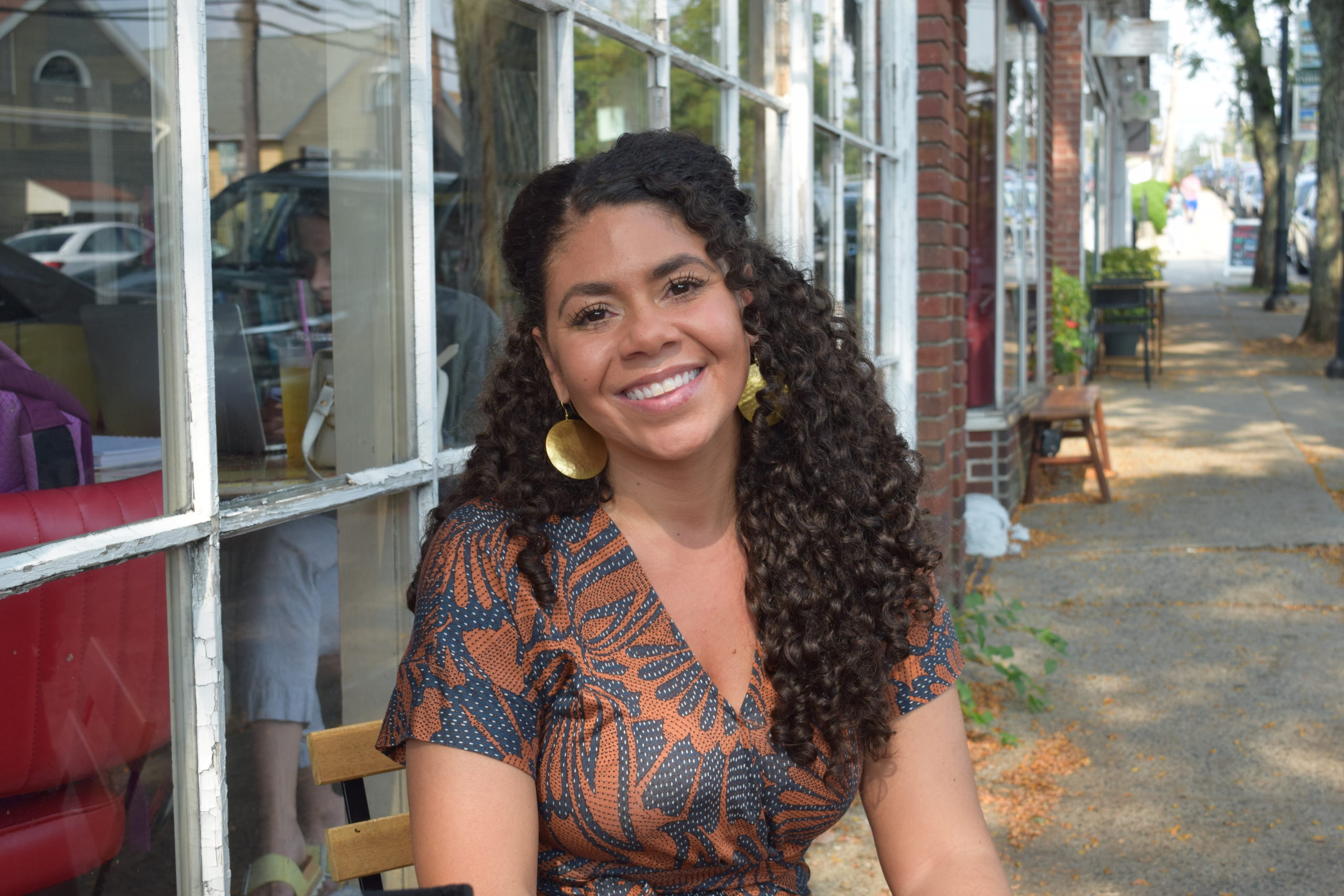
Is the traditional 60-40 balanced portfolio strategy no longer viable? Is cash no longer king? And, finally, where is the economy ”” both domestic and global ”” heading?
Those were some, but by no means all of the major themes explored at the fourth annual Greenwich Economic Forum, held in-person at that town”™s Delamar Hotel on Sept. 22 and 23. (A third day, Sept. 24, was entirely online.)
As previously reported, the GEF, normally held in November, was moved up this year to avoid the cold weather and potentially forcing a decision to go all virtual as organizers did last year.
Regarding the pandemic, most of the speakers and presenters took the position that the challenges presented by Covid-19 are a thing of the past. Maybe.
Seemingly on hand primarily to promote President Joe Biden”™s proposed $7 trillion “Build Back Better Plan” (BBB), Deputy Assistant Secretary for Macroeconomic Policy, U.S. Treasury Neil Mehrotra opined that should Congress fail to enact its various provisions, “the post-pandemic economy will largely be unchanged from the pre-pandemic economy.”
The BBB consists of the American Rescue Plan, passed in March, as well as the American Jobs Plan (which promises to rebuild infrastructure and create jobs) and the American Families Plan (involving education- and childcare-funding).
Invoking how quickly the U.S. economy has rebounded from the worst of Covid ”” 78% of jobs lost in March-April 2020 have been recovered; GDP as of the second quarter of this year has outpaced pre-pandemic levels; the poverty rate is down to 9.8%, the lowest since it began being measured in 1967 ”” Mehrotra credited the various federal stimulus programs, “including those in the ARP (American Rescue Plan).”
In addition, he said that while the Congressional Budget Office had predicted a 5.3% unemployment rate by the end of this year ”” it currently stands at 5.2% according to the latest data from the U.S. Bureau of Labor Statistics ”” Mehrotra said, “We expect (it) to be 4.7%” by the end of 2021.
Allowing that some sections of the economy have been booming while others are lagging, he asserted that “control of the pandemic will even things out.”
Even so, Mehrotra conceded that the Delta variant, as well as possible future variants, could have a deleterious effect over the coming months.
As for the BBB, he said, “Where Congress comes down will determine our economy for the next several decades.”
Dalio addresses possibility of war
Mixed optimism was the byword for Ray Dalio, making his fourth consecutive appearance at the GEF. Hardly the sunniest of commentators at the best of times ”” the founder of Westport”™s Bridgewater Associates reportedly lost $12.1 billion for investors in 2020.
That was elided during his onstage interview, which found him foreseeing a minor interest-rate increase, another round of quantitative easing ”” something most Americans probably haven”™t thought about since the 2008-09 recession, although another round was introduced in late 2019 ”” and, potentially, a war with China.
Dalio stated that there are five kinds of war ”” trade, technology, geopolitical, capital and military. “We are certainly, in varying degrees, in the first four of those types of wars,” he said. “There”™s a good reason to worry about the fifth type of war.”
That blunt statement went unchallenged by moderator Gillian Tett, chairwoman of the editorial board and editor-at-large of the Financial Times. Instead she asked him about the Chinese approach to economic policy, which he said worked in a “top-down” manner ”” where the good of the state takes precedence over the good of the individual ”” instead of the “bottom-up” approach generally favored in the West.
“There”™s a lot of miscalculating about where they”™re coming from,” Dalio said. The key is to unravel the riddle of how a “Communist/Marxist” government has grown to have the world”™s largest capital market and a growing number of billionaires.
Dalio also reiterated that he owns “a little bit of cryptocurrency,” saying, “I”™m into diversification. I”™m sort of an anti-money guy.”
At a separate presentation, Bennett Goodman, executive chairman of Hunter Point Capital, said the current economic climate is “defined by complacency,” driven in part by an excess of cash.
“What do you do with cash?” he asked, averring that “no one” has lost money by owning other financial assets since “it all came roaring back” after the pandemic.
“It”™s always a little scary when people are flush with cash,” Goodman said, “and everybody is seeking yield.”
Instead, “alternative investments” have become increasingly attractive, as has a general move away from public credit toward private credit, according to fellow panelist Ken Kencel, president and CEO of Churchill Asset Management.
At a separate panel, Russell Investments Chairman and CEO Michelle Seitz estimated that there are now 2,600 companies worth over $100 million ”” and 17,000 private companies valued the same. “You would never limit yourself to 15% of the investible universe,” she said.
Coincidentally offering a concrete example of betting on alternative investments was iCapital Network, a “diamond sponsor” of the GEF, which announced its plans to acquire Axio Financial on Sept. 21. Based in New York City, iCapital reportedly has $86 billion worth of investments in nearly 800 alternatives, including hedge funds, private equity, real estate and venture capital.
Portfolio change-up
The growing interest in cryptocurrency and blockchain ”” to be discussed further in next week”™s issue of the Business Journal ”” was cited by several speakers as further proof of a rapidly evolving investing world where traditional strategies are, if not entirely dead, certainly in failing health.
“The 60-40, 70-30 mix has been turned on its head over the last decade,” declared Seitz. (The mix typically involves investing 60% of a portfolio in equity and the remainder in debt.)
“60-40 is blown,” Tarsadia President Mitchell Caplan said at a later panel. “It just doesn”™t work.”
Fellow panelist Milind Mehere, founder and CEO of Yieldstreet, agreed: “It”™s time for us to rethink how we can modernize the portfolio.”
Gov. Ned Lamont appeared at the end of the GEF”™s first day to boast about how his administration has “gotten our fiscal house in order” and “balanced the budget without raising taxes.”
Crediting such administration members as Department of Economic and Community Development Commissioner David Lehman, Department of Administrative Services Commissioner Josh Geballe, and Chief of Staff Paul Mounds, Lamont said he remained determined to help the state”™s business community “in any way we can.”
However, “I”™m not putting up a ”˜Mission Accomplished”™ sign on the aircraft carrier,” he said, referring to then-President George W. Bush”™s much-mocked 2003 appearance declaring the cessation of major combat operations in Iraq, roughly four years before significant troop withdrawals took place.
“We still have $40 billion in pension obligation debt,” Lamont said. “We still have work to do.”
Saying that 25,000 families have been enticed to relocate to Connecticut “over the last few years,” the governor said, “I think we”™ll be in pretty good shape.”
He also advised those thinking of relocating here to “move fast while there”™s space.”
Next issue: The GEF concludes with conversations about health care, crypto and blockchain, and building a greener world, as well as a conversation with former U.S. Federal Reserve Chairman Alan Greenspan.




















